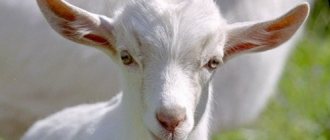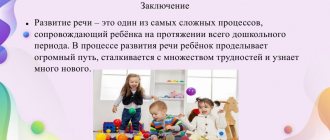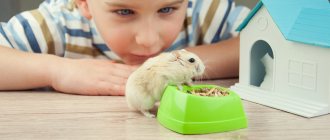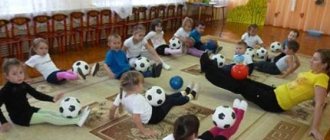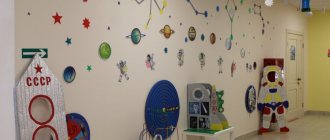Progress of the lesson.
- Look - this is a clearing, green grass grows on it. A chicken came to the clearing and said: “Ko-ko-ko! I want to eat!"
. What does the chicken eat? That's right, grains. The chicken searches and searches for grains in the clearing - there are no grains. Let's feed the chicken and give her some tasty grains.
(Put on the green “clearing”
plasticine ball and invite the baby to press it with his finger.)
- Here is a grain and here is a grain. The chicken pecked the grains and said: “Ko-ko-ko! Thank you! Very tasty grains. I want more grains"
. Let's guys give the chicken a lot of grains!
(After completing the task, play up the result: a toy chicken will come to every clearing, peck at the grain on it, and praise each child.)
Productive GCD (Drawing)
on the topic of:
"Grass for a cow"
Goal: to teach children to hold a brush correctly in their hand; draw sticks - straight vertical lines; control the length of the line, its beginning and end; develop an interest in drawing.
Equipment: green paint; sheets of drawing paper (1/2 of an A4 sheet)
with blanks
(according to the number of children)
: a horizontal brown line is drawn at the bottom of the sheet - this is a clearing, on it is a cow.
Progress of the lesson.
- Look, guys, a cow came to our clearing. She is very hungry. “MU! I want to eat!"
. What does a cow eat? That's right, grass. Let's feed the cow, give her juicy, green grass.
- Let's draw vertical lines of green color - grass. (I show how to paint green grass with a brush)
.
— Green grass grew in the clearing.
(Give the kids sheets with blanks and brushes with green paints)
— You also have a cow grazing in your pictures. Draw green grass for her.
(After completing the task, praise the kids on behalf of the cow and treat them with milk.)
Entertainment in the second junior group
“Visiting grandma in the village”
.
Goal: To consolidate and expand children's initial knowledge about domestic animals and birds .
Tasks:
Educational:
— Foster a sense of love for the surrounding world, caring attitude towards the inhabitants of wildlife .
— Develop skills to work together.
Educational:
— Develop children’s mental processes: attention, memory, thinking.
— To promote the development of coherent speech and the articulatory apparatus when pronouncing vowel sounds using onomatopoeia.
- Continue to develop fine motor skills.
— Arouse positive emotions and interest in the process of sculpting with your fingers (use the pressing technique)
.
Educational:
— Strengthen children’s knowledge about pets .
— Reinforce the concept of poultry .
— Learn to distinguish the voices of pets and answer the teacher’s questions.
Methods and techniques: organizational aspect, game techniques, modeling, art. word, surprise moment, questions for children, health-saving technologies.
Vocabulary work: domestic animals , goat, cow, horse, cat, pig, dog, poultry , chicken, rooster, duck, goose.
Preliminary work:
— Looking at illustrations with pets .
— Watching a cat and a dog, reading thin. literature.
— Didactic game “Who is screaming?”
— Games of transformation into animals.
— Didactic game: “Who lives where?”
— Reading poems and riddles about animals.
— Learning Russian folk nursery rhymes.
